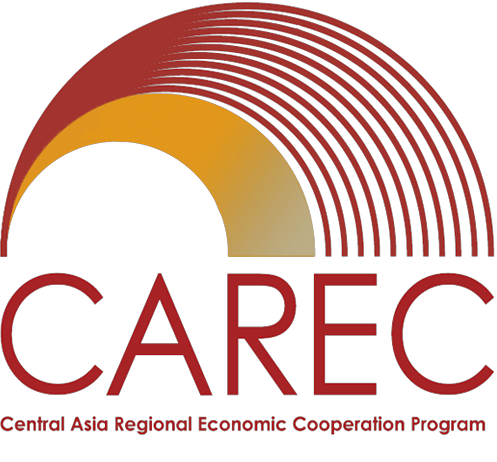16th CAREC Customs Cooperation Committee Meeting
The meeting of the CAREC Customs Cooperation Committee (CCC) agreed to pilot the CAREC Advanced Transit System and the CAREC Customs Information Common Exchange, support the implementation of the Trade Facilitation Agreement in CAREC countries, and the formulation of the new Trade Facilitation Strategic Framework.
The Tajikistan Customs Service is the host customs for this year’s meeting. Heads and senior customs officials representing Azerbaijan, the People’s Republic of China, Georgia, Kazakhstan, the Kyrgyz Republic, Mongolia, Pakistan, Tajikistan, and Uzbekistan attended the meeting.
At the end of the meeting, the CCC members agreed to endorse to the Consultation Meeting with the CAREC National Focal Points, held in Dushanbe on 21-22 September 2017, the following:
Piloting of a CAREC Advanced Transit System (CATS). Prototype CATS key elements and procedures that are compatible with the New Computerized Transit System, including risk-based comprehensive guarantee mechanism, single transit document and the information common exchange for transit:
- Azerbaijan, Georgia, and Kazakhstan confirmed their participation in the further development of Prototype CATS and its pilot implementation.
- A trilateral agreement will provide the basis for conducting a pilot of the Prototype CATS, and the trilateral agreement will be finalized by the three countries by end of 2017.
- The actual pilot will start in 2018.
Piloting of Information Common Exchange (ICE). Although the ICE will be used for a broader array of customs operations in the future, the first pilot phase will be implemented as the ICE for the single transit document to support the implementation of CATS. Key elements will include:
- technical specification that will be based on and conform to World Customs Organization (WCO) Data Model;
- ICE systems software that will be installed in the pilot countries; it will be a distributed model system and it will have Gateway services component to potentially provide integration with customs information systems and with other ICE systems; and
- potential to contribute back to WCO with Globally Networked Customs Utility Blocks and common transit data model.
Support for the implementation of Trade Facilitation Agreement (TFA). Technical assistance in fulfilling their TFA commitments will be needed by CAREC countries.
- Based on assessment of the readiness for TFA implementation, support will focus on the following: (i) common areas which most countries designated as Category A for immediate and effective implementation, and Categories B and C for specific capacity-building needs; (ii) selected additional areas with regional significance such as information transparency, result management, risk management, coordinated border management, and single windows; and (iii) National Committee on Trade Facilitation.
- A new technical assistance project will be formulated to support TFA implementation based on TFA implementation assessment per country.
- Collaboration with development partners to avoid overlaps and ensure more comprehensive coverage.
More investment and technical assistance projects for trade facilitation. Improvement of border services remains a major concern for most CAREC countries and scoping work for investment projects will continue.
- Azerbaijan and Georgia plan to build a new border crossing point that will require assistance from donors to expand capacity, adopt a one-stop principle, and be used as joint facility by both countries.
- Pursue scoping for Regional Improvement of Border Services in Turkmenistan and Uzbekistan.
Formulation of new Trade Facilitation Strategy. The new strategic framework will be consistent with the new forthcoming CAREC Strategy 2030 and supports TFA implementation.
- Continue and deepen the existing areas of competence such as in customs and selected areas of integrated trade facilitation.
- Adopt and implement the latest global agenda on trade facilitation, i.e., World Trade Organization TFA.
- Reach out to related existing and new sectoral, cross- sectoral, and broader policy areas where trade facilitation plays key roles, such as transport, agriculture, small and medium-sized enterprise or SME development, cross-border finance, cross-border economic zone, regional and global value chain, e-commerce, etc.
- Evaluate results objectively and continuously, and strengthen implementation and adjust the program accordingly.
- Crush institutional silos for seamless exchange of information and effective coordination.
Related Links
- Workshop on CAREC Advanced Transit System and Information Common Exchange
- CAREC Transport and Trade Facilitation Strategy
Event Materials
Key Documents
Presentation Materials
- Data Analysis for Effective Border Management
- Update on CCC Programs and other Deliverables
- Results of the Workshop on Capacity Building for Implementation of WTO’s Trade Facilitation Agreement in CAREC Countries
- CAREC Advanced Transit System (CATS) Prototype Phase
- TA 8585: Customs Information Common Exchange—Progress Update
- Updates on Ongoing and Proposed Projects
- Regional Improvement of Border Services Project (Tajikistan)
- Regional Improvement of Border Services Project (Mongolia)
- Regional Improvement of Border Services Project (Pakistan)
